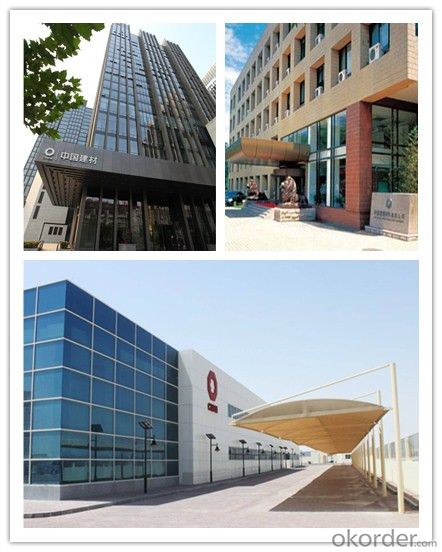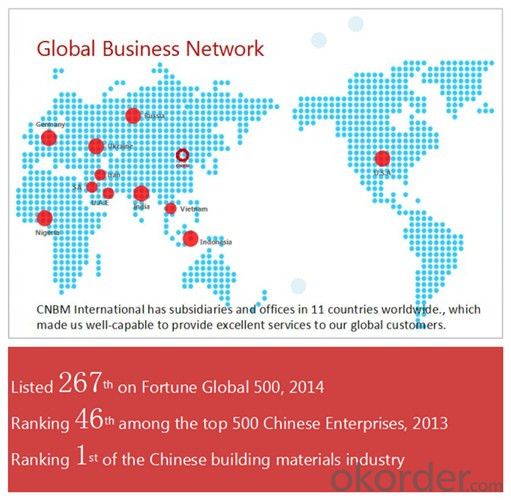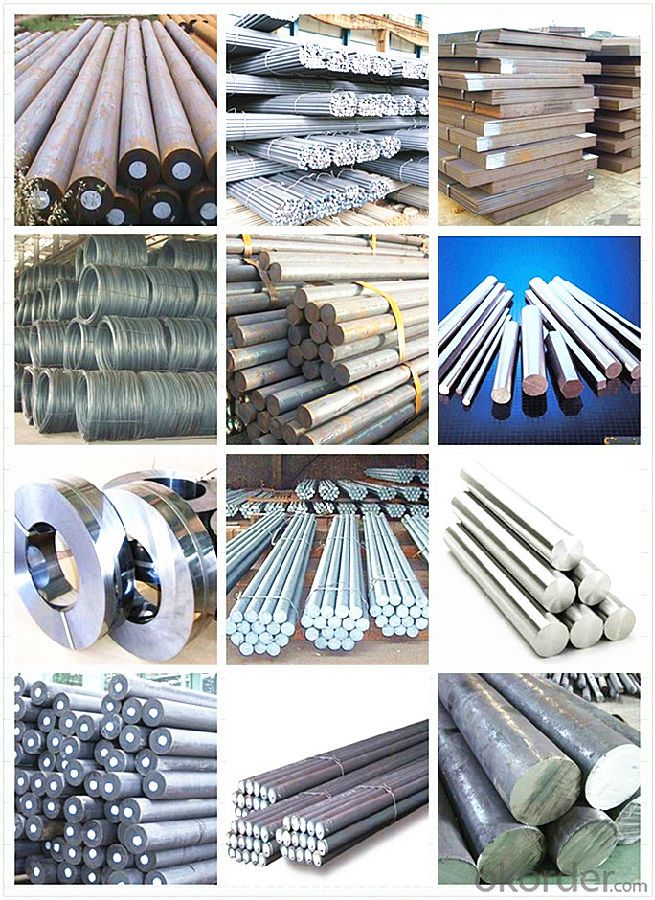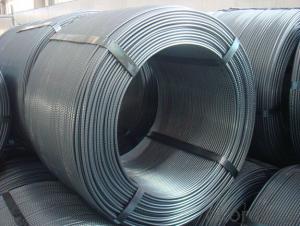Steel Wire Rod SAE1008 Suppliers for Making Nails
- Loading Port:
- Tianjin
- Payment Terms:
- TT OR LC
- Min Order Qty:
- 3 m.t.
- Supply Capability:
- 10000 m.t./month
OKorder Service Pledge
Quality Product, Order Online Tracking, Timely Delivery
OKorder Financial Service
Credit Rating, Credit Services, Credit Purchasing
You Might Also Like
Item specifice
Type:
Carbon Steel,Spring Steel,Bearing Steel,Gear Steel,Deformed Steel,Stainless Steel,Alloy Steel
Shape:
Steel Coil,Steel Sheet,Steel Wire Rod,Steel Flat Bar,Steel Square Bar,Steel Angle,Steel Round Bar,Steel Billets
Technique:
Hot Rolled,Cold Rolled,Cold Drawn,ERW,Forged,Saw,Extruded,EFW,Spring
Surface Treatment:
Galvanized,Coated,Copper Coated,Color Coated,Oiled,Dry,Chromed Passivation,Polished,Bright,Black,PVDF Coated
Certification:
ISO,SGS,BV,IBR,RoHS,CE,API,BSI,UL
Thickness:
5.5-16mm
Width:
5.5-16mm
Length:
In coils
Outer Diameter:
5.5-16mm
Net Weight:
2m.t.
Packaging:
Seaworthy packaging
Steel Wire Rod SAE1008 Suppliers for Making Nails
Detailed Information of Steel Wire Rod SAE1008 Suppliers for Making Nails
| Name | Hot Rolled High Carbon Wire Rod |
| Shape | Round Bar/Square Bar/Flat Bar/Plate/Wire |
| Standard | GB/ASTM/SAE/AISI/DIN/JIS/EN/BS |
| Surface Treatment: | Black/Peeling/Polished/Machined |
| Delivery Condition: | Hot Rolled or Forged/Peeled or Black Surface |
| Test | SGS/UT 100% Elements Testing |
| Certificate: | ISO/Mill Certificate |
| Service: | 24 hours online service / |
| more than 20 years trading and manufacture | |
| Quality Assurance: | the third party inspection, such as SGS, BV, TUV…etc. is acceptable |
| Packaging Details: | Seaworthy Packaging or as per customer's packing instruction |
Chemical Composition of Steel Wire Rod SAE1008 Suppliers for Making Nails
| Grade | Chemical Composition(%) | |||||
| C | Mn | Si | S | P | B | |
| SAE1008 | 0.1max. | 0.3~0.50 | 0.15max | 0.050max | ≤0.040 | >0.0008 |
| Mechanical properties | ||||||
| Yield strength(N/mm2) | Tensile strength(N/mm2) | Elongation(%) | ||||
| 250-280 | 350-380 | ≥32 | ||||
Company Introduction the Steel Wire Rod SAE1008 Suppliers for Making Nails
CNBM International Corporation is the most import and export platform of CNBM group(China National Building Material Group Corporation) ,which is a state-owned enterprise, ranked in 270th of Fortune Global 500 in 2015.
With its advantages, CNBM International are mainly concentrate on Cement, Glass, Iron and Steel, Ceramics industries and devotes herself for supplying high quality series of refractories as well as technical consultancies and logistics solution.


| After-sale service | CNBM provides the services and support you need for every step of our cooperation. We’re the business partners you can trust; you can relax and get on with doing business. |
| For any problem, please kindly contact us at any your convenient time, we’ll reply you in our first priority within 24 hours | |
| Advantages | Industry experience over 20 years. |
| Shipment of goods -More than 70 countries worldwide. | |
| The most convenient transport and prompt delivery. | |
| Competitive price with best service. | |
| High technical production line with top quality products. | |
| High reputation based on best quality products. |
Packaging & Delivery the Steel Wire Rod SAE1008 Suppliers for Making Nails
| Packaging Detail | Sea worthy packing /as per customer's packing instruction |
| Delivery Detail | 15 ~ 40 days after receiving the deposit |
Products Show

FAQ:
| Are you a trader or manufacturer? | Manufacturer |
| What’s the MOQ? | 3 metric ton |
| What’s your delivery time? | 15-35 days after downpayment received |
| Do you Accept OEM service? | Yes |
| what’s your delivery terms? | FOB/CFR/CIF |
| What's the Payment Terms? | 30% as deposit,70% before shipment by T/T |
| Western Union acceptable for small amount. | |
| L/C acceptable for large amount. | |
| Scrow ,Paybal,Alipay are also ok | |
| Why choose us? | Chose happens because of quality, then price, We can give you both. |
| Additionally, we can also offer professional products inquiry, products knowledge train (for agents), smooth goods delivery, excellent customer solution proposals. | |
| What's your available port of Shipment? | Main Port, China |
| What’s your featured services? | Our service formula: good quality+ good price+ good service=customer's trust |
| Where are your Market? | Covering more than 160 countries in the world |
- Q:How does special steel contribute to the waste management industry?
- Special steel plays a crucial role in the waste management industry by providing durable and corrosion-resistant materials for various applications. It is used in the fabrication of waste containers, compactors, and shredders, ensuring their longevity and ability to withstand harsh environments. Additionally, special steel is utilized in incinerators and waste-to-energy plants, where its high heat resistance helps optimize the combustion process. Overall, special steel contributes to the waste management industry by enhancing the efficiency, durability, and sustainability of its equipment and infrastructure.
- Q:How does special steel contribute to the hardness of products?
- Special steel contributes to the hardness of products through its unique composition and manufacturing processes. Unlike regular steel, special steel is alloyed with additional elements such as chromium, nickel, and manganese, which enhance its strength and durability. These alloying elements form solid solutions within the steel matrix, creating a more rigid and dense structure. The presence of these alloying elements in special steel allows for the formation of various microstructures, such as fine-grained structures or martensitic structures, which significantly increase the hardness of the steel. Moreover, special steel often undergoes heat treatment processes like quenching and tempering, which further refine its microstructure and improve its hardness. Additionally, the manufacturing processes used for special steel, such as hot rolling or cold working, can also contribute to its hardness. These processes deform the steel, aligning its grain structure and reducing any defects or impurities present, leading to a more uniform and harder material. The hardness of special steel is crucial in various industries where strength and resistance to wear and deformation are essential. For example, in the automotive industry, special steel is used to manufacture components like engine parts, gears, and axles, which require high hardness to withstand the demanding conditions and loads they experience. Similarly, in the construction industry, special steel is used for producing tools, cutting blades, and reinforcement bars, where hardness is crucial for longevity and performance. In summary, special steel contributes to the hardness of products through its unique alloying elements, manufacturing processes, and heat treatments. Its ability to form microstructures and its resistance to deformation make it an ideal material for applications where hardness is essential for performance and durability.
- Q:How does special steel contribute to the automotive industry?
- Special steel plays a crucial role in the automotive industry by providing high strength, durability, and corrosion resistance properties, which are essential for various automotive components. This type of steel is used in manufacturing critical components such as engine parts, chassis, suspension systems, and safety features like airbags and seatbelt mechanisms. It not only improves the overall performance and safety of vehicles but also helps in reducing weight, enhancing fuel efficiency, and meeting stringent emission standards.
- Q:How does special steel perform in high-temperature mechanical fatigue conditions?
- Special steel, such as heat-resistant or high-temperature steel alloys, is specifically designed to excel in high-temperature mechanical fatigue conditions. It demonstrates superior resistance to thermal expansion, corrosion, and oxidation, allowing it to maintain its structural integrity and mechanical properties even at elevated temperatures. This type of steel exhibits excellent strength, toughness, and creep resistance under prolonged cyclic loading, making it a reliable material for applications in high-temperature mechanical fatigue conditions.
- Q:How does special steel contribute to improved product aesthetics?
- Special steel contributes to improved product aesthetics in several ways. Firstly, special steel can be manufactured with a higher level of precision and consistency compared to regular steel. This allows for the creation of products with smoother surfaces, sharper edges, and more intricate designs. As a result, products made from special steel often have a more visually appealing appearance. Additionally, special steel can be treated or coated to enhance its visual appeal. For example, it can be polished to create a reflective surface, giving the product a high-end and luxurious look. Special steel can also be coated with different colors or finishes, such as chrome or black oxide, to match specific design preferences and create a more visually striking appearance. Furthermore, special steel can be shaped and formed in unique ways due to its superior strength and flexibility. This allows designers to create products with more complex and innovative shapes, resulting in a distinct and eye-catching aesthetic. The ability to mold special steel into various forms also opens up possibilities for creating intricate patterns, textures, and embossed designs on the product's surface. Lastly, special steel offers excellent corrosion resistance and durability, which helps maintain the product's appearance over time. It prevents rust, staining, and other forms of deterioration that can negatively impact the visual appeal of a product. This long-lasting aesthetic quality is especially important for products that are regularly exposed to harsh environments or require frequent handling. In summary, special steel contributes to improved product aesthetics through its precision manufacturing, customizable surface treatments, unique shaping capabilities, and long-lasting visual appeal. These qualities allow for the creation of visually appealing products that stand out in terms of design, finish, and overall appeal.
- Q:What are some examples of special steel alloys?
- There are several examples of special steel alloys that are widely used in various industries. One such example is stainless steel, which contains a minimum of 10.5% chromium, making it highly resistant to corrosion. Stainless steel is commonly used in the manufacturing of kitchen utensils, medical equipment, and automotive parts. Another example is tool steel, which is specifically designed to have high hardness and wear resistance. Tool steel is commonly used in the production of cutting tools, molds, and dies. High-speed steel is another special steel alloy that is known for its exceptional ability to maintain hardness even at high temperatures. This makes it ideal for manufacturing cutting tools used in high-speed machining operations. Alloy steel is a broad category that includes various steel alloys with specific properties. For example, low alloy steel contains small amounts of other elements such as manganese, nickel, or silicon to enhance its strength and toughness. This type of steel is commonly used in the construction industry. Furthermore, maraging steel is a special alloy that combines high strength with good toughness. It is often used in aerospace applications, such as aircraft landing gear and missile components, due to its ability to withstand high stress and impact. Overall, these are just a few examples of the many special steel alloys available, each tailored to meet specific requirements and applications in industries ranging from construction to aerospace.
- Q:What are the common challenges in welding titanium alloys?
- Welding titanium alloys presents various difficulties due to the unique properties of titanium. Firstly, the melting point of titanium is exceptionally high, reaching approximately 1668°C (3034°F). This necessitates the use of specialized equipment and techniques to attain optimal welding conditions. Moreover, this high melting point increases the risk of overheating, which can lead to distortion or warping of the welded components. Another challenge lies in titanium's strong reactivity with oxygen, nitrogen, and hydrogen. These gases can easily contaminate the weld pool during the welding process, resulting in the formation of brittle and porous welds. Therefore, it is essential to take rigorous measures such as utilizing inert shielding gases like argon or helium, maintaining a high level of cleanliness, and employing proper welding techniques like gas tungsten arc welding (GTAW) to minimize contamination and achieve sound welds. Titanium also exhibits a significant affinity for carbon, which can cause the formation of brittle intermetallic compounds during welding. To prevent this, it is crucial to employ low-carbon filler metals and ensure appropriate heat input to avoid carbon diffusion into the weld zone. Furthermore, titanium alloys possess low thermal conductivity, causing heat generated during welding to concentrate in a small area. This concentration leads to localized overheating and potential damage. Hence, it is vital to control heat input and utilize suitable welding techniques to distribute heat evenly, thereby avoiding overheating and preserving the integrity of the welded joint. Lastly, titanium alloys display a high coefficient of thermal expansion, resulting in significant thermal expansion and contraction throughout the welding process. This can lead to distortion and residual stresses in the welded components. To mitigate these issues, preheating and post-weld heat treatment may be required to minimize distortion and relieve residual stresses. In conclusion, the challenges in welding titanium alloys encompass a high melting point, reactivity with gases, potential contamination, formation of intermetallic compounds, low thermal conductivity, and significant thermal expansion. By comprehending these challenges and implementing suitable welding techniques, it is possible to overcome these difficulties and achieve high-quality welds in titanium alloys.
- Q:How does special steel perform in high-pressure applications?
- Special steel performs exceptionally well in high-pressure applications. Its unique properties, such as high strength, excellent corrosion resistance, and good thermal stability, make it an ideal choice for withstanding extreme pressure conditions. It maintains its structural integrity, preventing deformation or failure, even when exposed to intense pressure. Additionally, special steel's resistance to fatigue and wear ensures long-term performance and reliability in high-pressure environments.
- Q:How does special steel perform in case hardening applications?
- In case hardening applications, the performance of special steel is outstanding. Case hardening, a heat treatment process, is used to increase the surface hardness of a material while maintaining its tough and ductile core. Special steel, also known as alloy steel, is specifically formulated to have enhanced properties like high strength, toughness, and wear resistance. When it comes to case hardening, special steel is the ideal choice due to its ability to form a hard outer layer while retaining its core properties. Typically, the process involves heating the steel to a specific temperature and then introducing a carbon-rich environment, such as through carburizing or carbonitriding. The carbon atoms diffuse into the steel's surface, creating a high-carbon layer called the case, which significantly increases hardness and wear resistance. Compared to other types of steel, special steel's high carbon content allows for deeper and more uniform case hardening. This results in improved durability, reduced friction, and enhanced resistance to wear, abrasion, and impact. Moreover, the tough core of special steel ensures that the material remains resistant to cracking or fracturing under high stress or impact loads. Furthermore, special steel offers excellent machinability, making it easy to process during case hardening applications. This makes it a preferred choice for various industries, including automotive, aerospace, tooling, and manufacturing, where components require both high surface hardness and structural integrity. Overall, special steel is highly regarded for its exceptional performance in case hardening applications. Its combination of high strength, toughness, wear resistance, and machinability makes it an excellent choice for producing durable and reliable components that can withstand demanding operating conditions.
- Q:How does special steel contribute to improving product efficiency?
- Special steel contributes to improving product efficiency in several ways. Firstly, special steel has excellent strength and durability properties, allowing products to withstand higher stress levels and operate reliably under demanding conditions. This enables manufacturers to design more efficient and compact products, reducing weight and space requirements. Secondly, special steel can have superior corrosion resistance, ensuring longer product lifespan and reducing maintenance needs. Additionally, special steel can offer enhanced heat resistance and conductivity, allowing for more efficient energy transfer and utilization in various applications. Overall, the use of special steel enables the production of more efficient and high-performing products across different industries.
1. Manufacturer Overview |
|
|---|---|
| Location | |
| Year Established | |
| Annual Output Value | |
| Main Markets | |
| Company Certifications | |
2. Manufacturer Certificates |
|
|---|---|
| a) Certification Name | |
| Range | |
| Reference | |
| Validity Period | |
3. Manufacturer Capability |
|
|---|---|
| a)Trade Capacity | |
| Nearest Port | |
| Export Percentage | |
| No.of Employees in Trade Department | |
| Language Spoken: | |
| b)Factory Information | |
| Factory Size: | |
| No. of Production Lines | |
| Contract Manufacturing | |
| Product Price Range | |
Send your message to us
Steel Wire Rod SAE1008 Suppliers for Making Nails
- Loading Port:
- Tianjin
- Payment Terms:
- TT OR LC
- Min Order Qty:
- 3 m.t.
- Supply Capability:
- 10000 m.t./month
OKorder Service Pledge
Quality Product, Order Online Tracking, Timely Delivery
OKorder Financial Service
Credit Rating, Credit Services, Credit Purchasing
Similar products
New products
Hot products
Hot Searches
Related keywords

































